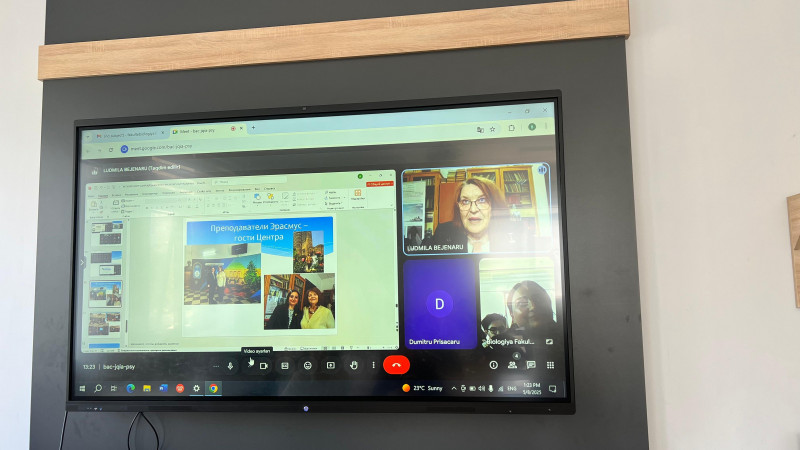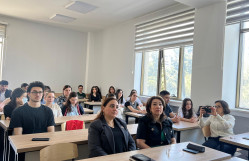Meeting of the students of the Faculty of Biology with Lyudmila Bejenaru, Head of the Azerbaijan Multiculturalism Center at Yassı University

President Ilham Aliyev's initiative to "promote Azerbaijan as a multiculturalism center in the world" is yielding significant results through the consistent and purposeful work carried out by the BBMM. The teaching of the "Azerbaijani Multiculturalism" course at foreign universities now covers a broader geographic area, while its influence and power continue to grow.
An online meeting was held at the Faculty of Biology with Lyudmila Bejenaru, Head of the Azerbaijan Multiculturalism Center at Yassı University, Romania. The meeting was opened by the Dean of the Faculty, Afət Məmmədova, who provided detailed information about the importance of establishing the Center and its role in promoting multicultural values.
Following her speech, Lyudmila Bejenaru gave a comprehensive report on the activities of the Center, emphasizing that, in the globalized world, Romania and the Republic of Azerbaijan are considered friendly countries and close economic partners. The two nations—Romanians and Azerbaijanis—have maintained friendly and warm relations for centuries. The speaker noted that modern relations between the two countries date back to the early 1990s. Diplomatic relations were established between the two states in 1992. In 1993, with the election of Heydar Aliyev as president, bilateral relations between Azerbaijan and Romania entered a new phase. Heydar Aliyev was the first president of Azerbaijan to make an official visit to Romania.
Lyudmila Bejenaru spoke about the activities of the Azerbaijan Multiculturalism Center at Yassı University and the teaching of the "Azerbaijani Multiculturalism" course at the university. She mentioned that as part of the course, lectures are given on historical sites and important works of Azerbaijan, which are included in UNESCO’s list. The Center's activities also include events dedicated to the martyrs of Karabakh, as well as efforts to inform the international community about the truths of Western Azerbaijan.
Teachers attending the event noted that the creation of such centers helps cultures to understand each other better, fosters cooperation in education and culture, and strengthens tolerance and respect among different cultures.
At the end of the event, the participants' questions were answered.
-xs.jpg)
